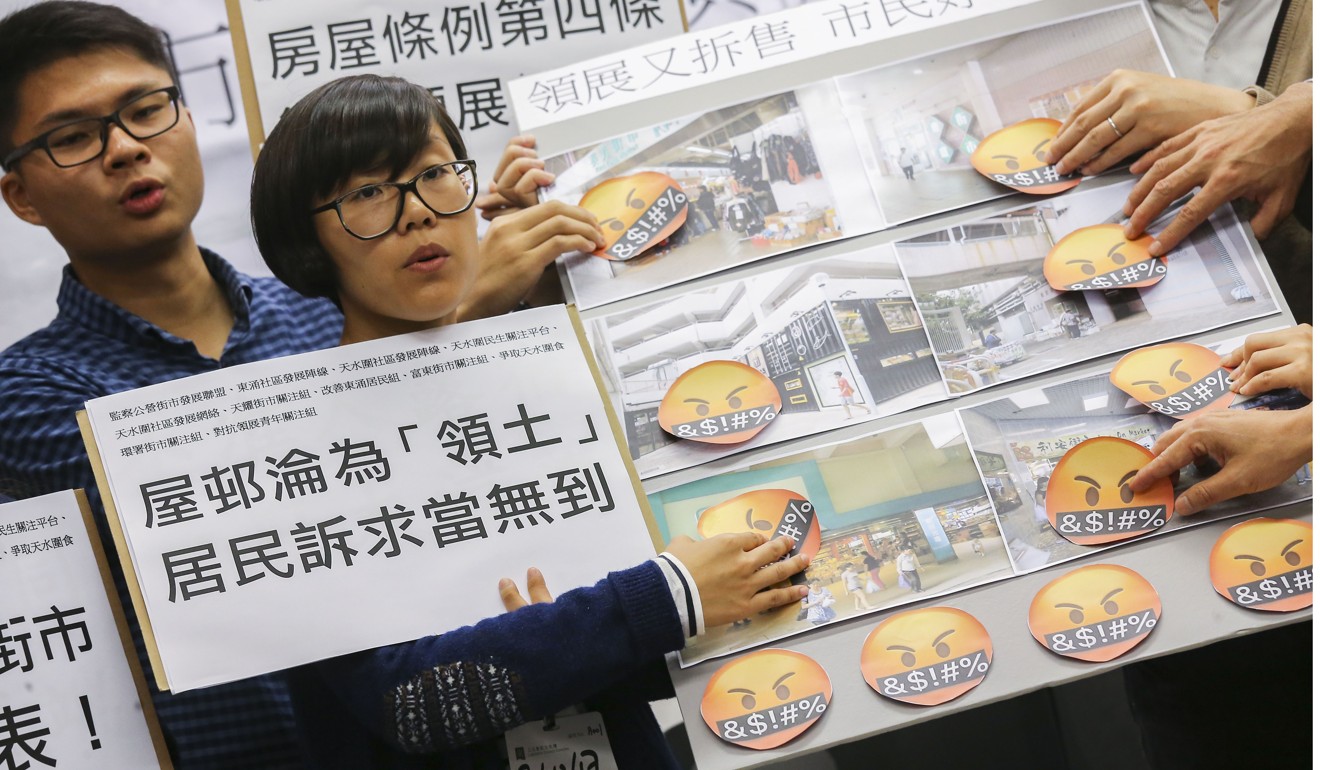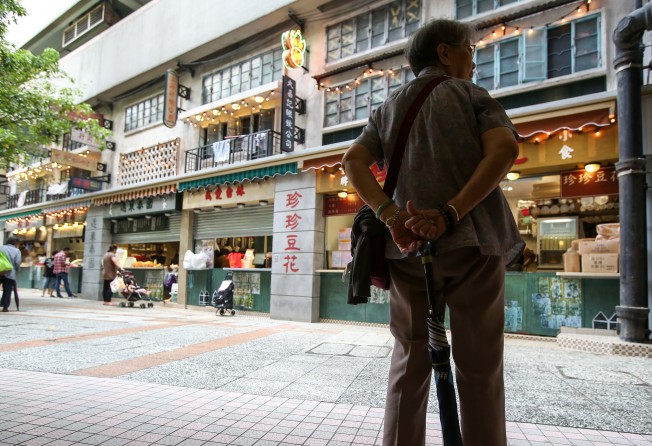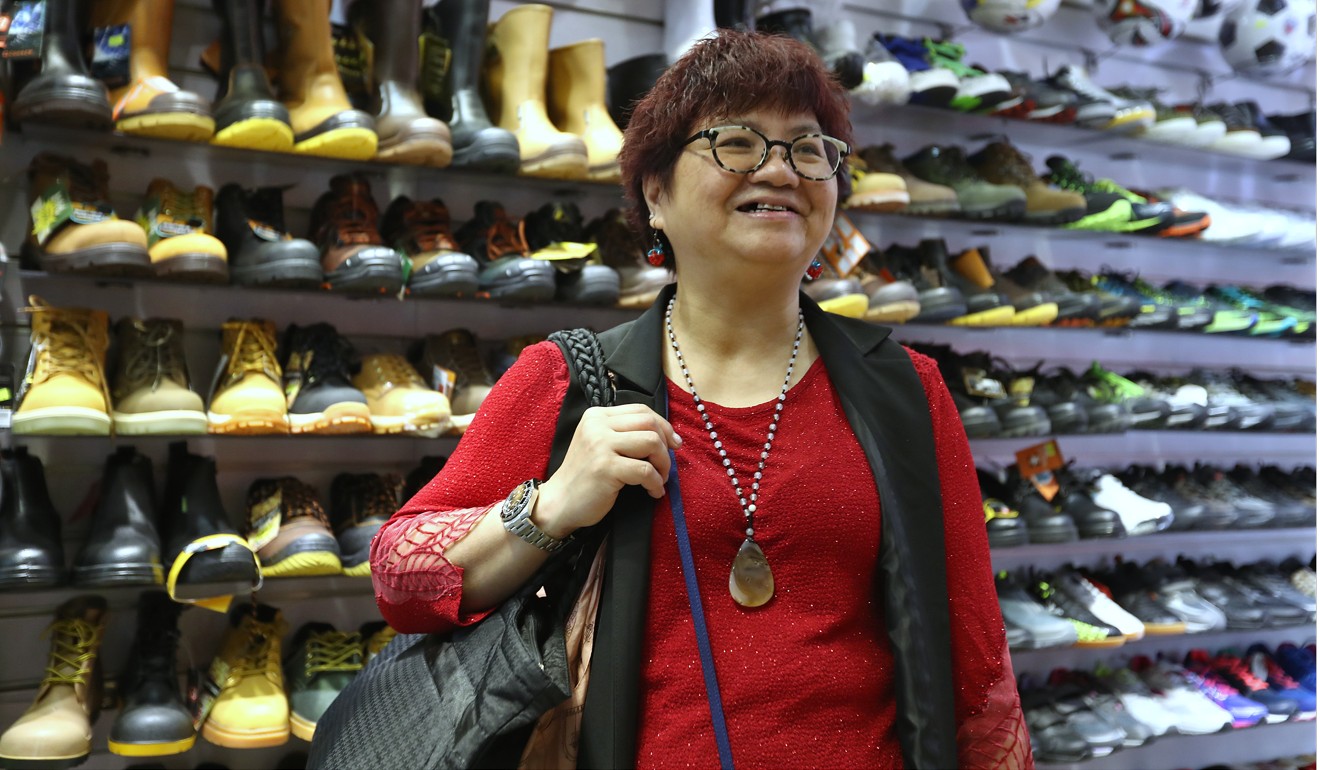
Can Hong Kong tame Link Reit’s greed for profit at the expense of public housing residents?
Regina Ip says Asia’s largest real estate investment trust should not be allowed to ignore its social responsibility to ensure that price and rental increases at its neighbourhood facilities remain reasonable for ordinary Hong Kong people

Hong Kong’s Link Reit, Asia’s largest real estate investment trust, was dogged by controversy even before its birth. In 2003, soon after the Housing Authority said it would sell a chunk of its retail facilities and car park spaces in public housing estates to private investors, concerns were expressed that privatisation could end up hurting the livelihood of poorer people.
Albert Cheng King-hon, then a legislator, was particularly vocal in warning that the Housing Authority was selling the properties cheaply; that private investors would be bound to raise rentals and even sell off some of the more profitable assets to boost stock value.
Lo Siu-lan, an elderly public housing tenant, filed a judicial review application in 2004 in an attempt to block the sale. Nevertheless, Hong Kong was recovering from its worst recession in years at the time, and the market hankering for a lift from a successful flotation prevailed. Objectors like Cheng and Lo were frowned on as creating unnecessary hurdles.
In 2005, the Link Reit was successfully floated after the Court of Final Appeal rejected Lo’s application. Subsequent developments, however, fully vindicated Cheng’s and Lo’s forebodings. After taking over the properties, the Link Reit quickly renovated the facilities, raised rents and replaced local stores with retail chains. Soon, public housing residents had to pay much higher prices for daily necessities. Many low-income residents, including elderly people, had to travel long distances to buy cheaper food and other necessities.
The Link Reit has crowed about how it has improved facilities in public housing estates. Yet many residents point out that it invests in improvements only in good locations with heavy visitor traffic, but much less so in the more obscure locations. Local tenants, such as those at Wo Che estate in Sha Tin, fear renovations, as every round of upgrading would be followed by another round of aggressive rent increase.

In 2014, after the Securities and Futures Commission relaxed the restrictions on reits, things have taken a turn for the worse for local residents. The revised Code on Real Estate Investment Trusts enabled the Link Reit to raise cash by selling its less profitable retail and car park facilities and to directly engage in property development.
Unfortunately for the residents, some of the buyers acted more like speculators than long-term investors
Since then, the Link Reit has sold 45 properties, and raised a whopping HK$35 billion. Its market cap now amounts to more than HK$150 billion, more than four times the price it paid to the Housing Authority in 2005.
Unfortunately for the residents, some of the buyers acted more like speculators than long-term investors. Car park spaces have been resold at three times the pre-sale price to residents and speculators. Some buyers have tried to convert commercial facilities into space for international schools or for-profit homes for the elderly, or allowed the facilities to fall into disrepair.
The recent sale of commercial properties in 17 estates at a record HK$23 billion, well above market expectations, have stoked heightened concerns about rental increases or further resale.

Some legislators have urged the government to buy back the Link Reit’s commercial properties to put an end to the ruthless profiteering at the expense of public housing residents. That is clearly not an option, considering that any buy-back would only further boost the stock price and line the pockets of the property owners, shareholders and top management. Moreover, the Housing Authority sold the facilities in the first place not only to raise cash, but also to rid itself of a burdensome management responsibility.
The authority was unable to raise rents because of political objections, and was often criticised for its inability to control illegal hawking. It thought privatisation would allow the markets to deal with the problems, but failed to anticipate how greed would strip public housing residents of their much-needed affordable commercial, social and welfare facilities.

It now behoves the government to go over each and every land lease applicable to housing estates with commercial facilities sold to the Link Reit and secondary buyers, to make sure that the original intent of the lease conditions is strictly complied with, and that public housing residents are not deprived of the wet markets, car park spaces, schools, nurseries, medical clinics and other facilities necessary to any happy, healthy community.
It is not good enough for the Secretary for Financial Services and the Treasury to talk about the importance of corporate social responsibility, as he did at a recent corporate governance award presentation, or for the stock exchange to encourage listed companies to disclose how they fulfil their corporate social responsibility. It is time the government actively studied how to ensure corporations do integrate ethical and socially responsible practices into their business strategies. If the government continues to stall while the Link Reit stonewalls, the legislature will have to figure out alternative ways to tame this “free market” Leviathan.
Regina Ip Lau Suk-yee is a lawmaker and chairwoman of the New People’s Party